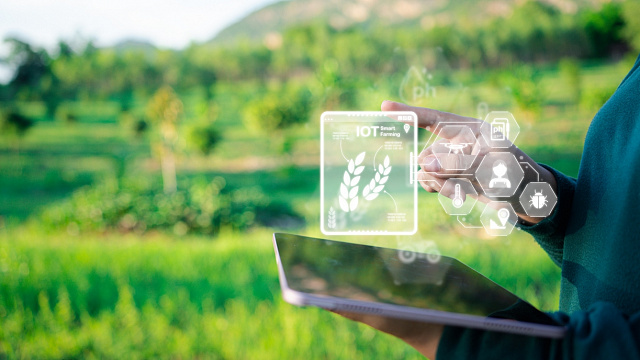The Ethiopian government on Tuesday unveiled the Digital Agriculture Roadmap (DAR), a nationwide initiative to fast-track the agriculture sector’s digital transformation.
This roadmap, created by the Ministry of Agriculture and the Agricultural Transformation Institute (ATI), will be effective between 2025 and 2032.
Read also: Ethiopian Securities Exchange launches with Wegagen Bank as first listed entity
Ethiopia’s goal to digitise agriculture
The government’s goal is to increase agricultural productivity by using sustainable, inclusive, and easily accessible digital solutions.
Agriculture Minister Girma Amente stated that the strategy aims to improve the availability of inputs, enhance the supply of financial services (such as insurance and agricultural loans), facilitate access to agricultural extension services through smartphones, and encourage improved coordination of actors throughout the whole value chain, from production to marketing.
In order to achieve these goals, the DAR will be deployed in two stages. Setting up fundamental digital infrastructure and creating priority services for agriculture will be the main goals of the first, which is planned for 2025–2029.
The second, spanning 2030–2032, will seek to broaden and diversify the digital ecosystem throughout the industry.
Obstacles to Ethiopia’s agricultural digitalisation
Authorities claim that some of the biggest obstacles to Ethiopia’s agricultural digitalisation include a lack of digital skills and limited connectivity, which may prevent the industry from embracing digital technologies.
76 percent of Ethiopians still do not utilise mobile internet, according to a research released in October 2024 by the Global Mobile Phone Association (GSMA) titled “Driving Digital Transformation of the Economy in Ethiopia: Opportunities, Policy Reforms and the Role of Mobile.”
Read also: Ethiopian Securities Exchange begins operations
Additionally, according to the GSMA, 36% of Ethiopians own a smartphone, one of the key tools in the Digital Agriculture Roadmap (DAR).
Furthermore, the association assigns a score of 41 out of 100 to the population’s degree of proficiency in fundamental digital abilities.
Africa’s agricultural production still faces numerous obstacles that prevent the region from achieving its much-desired food self-sufficiency. Digital technology in the current dispensation has enormous potential to change this industry, much like mechanisation did during the Industrial Revolution. Ethiopia has made the decision to start this with a bold plan.





Leave a Reply